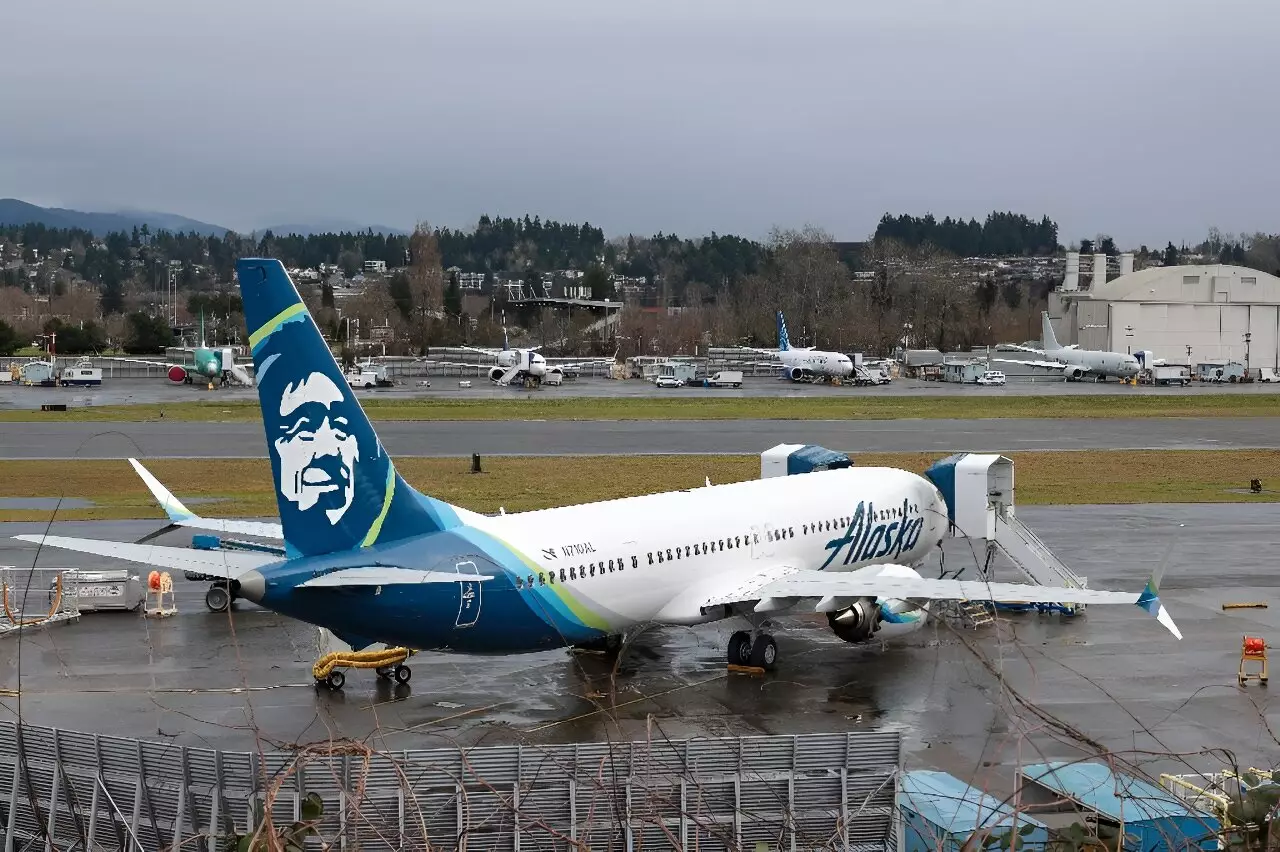The airline manufacturing industry is currently grappling with various challenges that are causing delays and disruptions in aircraft production. Two major players in this sector, Boeing and Airbus, are facing supply chain constraints, which are affecting their ability to deliver aircraft on schedule. While Boeing is dealing with the aftermath of the 737 MAX crisis, Airbus is tackling an issue related to the engines of its A320neo jets. These challenges are not only impacting the manufacturers themselves but are also posing a significant hurdle for airlines trying to meet the growing demands of the travel industry.
Boeing, the US giant in the aviation industry, has been experiencing significant difficulties with its flagship plane, the 737 MAX. The series of issues culminated in a major in-flight safety incident involving Alaska Airlines in early January. As a result, the Federal Aviation Administration (FAA) has frozen Boeing’s plans to ramp up MAX production through 2025. This move by the FAA is likely to further delay Boeing’s delivery timetable, which was already behind schedule.
Unlike Boeing, Airbus has managed to avoid comparable safety troubles with its aircraft. However, the manufacturer is facing a major headache due to a problem with engines built by Pratt & Whitney, a unit of RTX. It is crucial to inspect hundreds of Airbus 320neo jets between 2023 and 2026 to check for microscopic contamination of metals used in engine construction. These inspections, along with any necessary engine fixes, require an extensive duration of 250 to 300 days per aircraft. This additional step creates an additional hurdle for airlines aiming to fulfill the increasing travel demand.
The troubles faced by Boeing have prompted some of its customers to consider alternative options. One such example is Alaska Airlines, which has been exclusively supplied by Boeing until now. The airline was previously considering orders of the Boeing 737 MAX 10 but has now expressed openness to shifting their orders due to its pending acquisition of Hawaiian Airlines, which is supplied by Airbus. The CEO of Alaska Airlines, Ben Minicucci, acknowledged the possibility of exploring other options, stating, “Everything is open at this point. We are going to do what is best for Alaska.”
While changing plane suppliers may seem like a reasonable solution, it is far from straightforward for airlines. In order to switch manufacturers, airlines need to secure a spot in the order book of the chosen manufacturer. Additionally, the manufacturer must ready its supply chains to execute a multi-plane order over an extended period, which can span months or even years. Currently, Airbus’s production infrastructure is completely booked through 2030 for single-aisle planes (A320 line) and through 2028 for long-distance jets (A350). The CEO of Airbus’s commercial aircraft business, Christian Scherer, emphasized the need to deliver 8,600 planes on time and ready to fly. However, with the increasing demand, airlines are signing contracts for jets that won’t be delivered for several years. Despite this long wait, Airbus continues to receive more orders, with the company receiving a record-breaking 2,094 new orders in 2023 alone.
Persistent Scrutiny for Boeing
Boeing, the major US rival of Airbus, has been facing persistent scrutiny following the Alaska Airlines incident involving the 737 MAX 9. Apart from quality control concerns, Boeing has yet to receive certification for both the 737 MAX 7 and the 737 MAX 10, which are the smallest and largest versions of the single-aisle model, respectively. Airlines have placed a significant number of orders for these aircraft, with 391 orders for the MAX 7 and 1,180 for the MAX 10. However, due to the uncertain timeframe, airlines are readjusting their schedules. Boeing’s order book remains strong, with over 4,000 orders across the MAX program out of a total of 5,626 plane orders. However, the next available order slots for 737s are projected to be “towards the end of the decade.”
Both Boeing and Airbus are facing persistent challenges in their supply chains. Christopher Raite, a senior analyst at Third Bridge, highlights the constraints in the supply chain and the inability to support the desired production ramp-up. Raite also points out the supply crunch of critical metals from Russia and Ukraine, further contributing to the challenges faced by the manufacturers. In light of these issues, airlines may need to consider alternative solutions if they are unable to acquire planes on time from Boeing and Airbus. One potential solution is renting jets, which would provide a temporary workaround to fulfill their immediate needs.
The airline manufacturing industry is currently grappling with numerous challenges that are affecting the production and delivery of aircraft. Both Boeing and Airbus, the key players in this sector, are facing supply chain constraints due to various factors. Boeing’s struggles with the 737 MAX crisis and the FAA’s freeze on production plans have caused significant delays. Airbus, on the other hand, is dealing with engine problems that require lengthy inspections and fixes. These challenges have prompted some airlines to explore alternative options and consider shifting their orders. However, changing suppliers is not a straightforward process, given the time constraints and booking limitations of manufacturers. Despite these challenges, both Boeing and Airbus continue to receive orders and are working towards finding alternative solutions to meet the demands of the ever-growing travel industry.


Leave a Reply